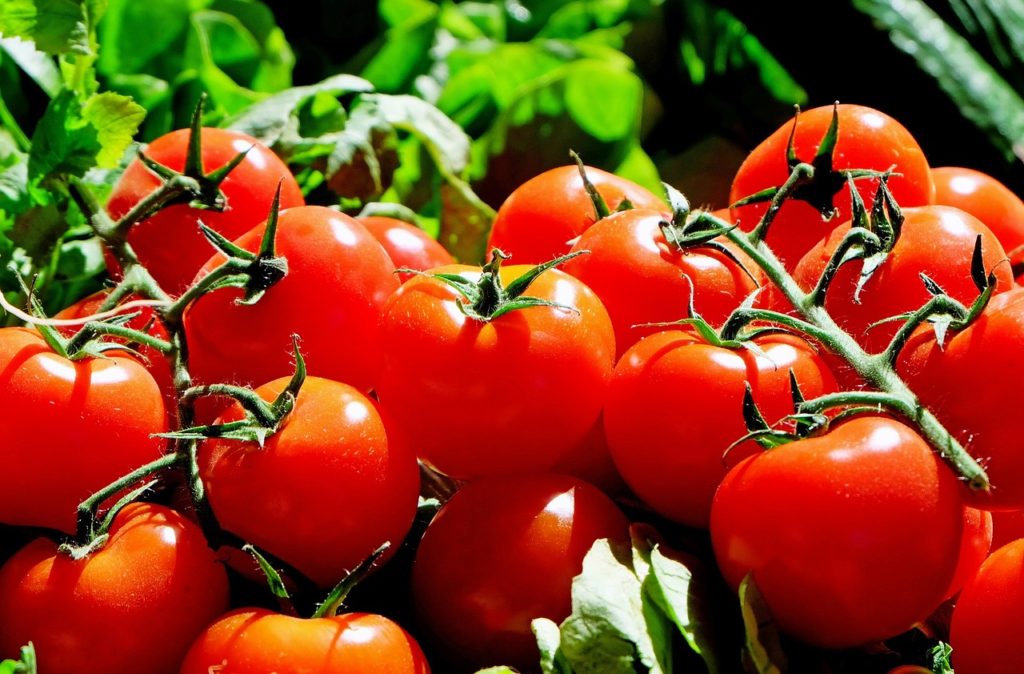Vegetable Planting Guide by Month for South Florida Gardeners

Couleur / Pixabay
Gardens can be planted year-round in Florida, but fall is the preferred seed-planting season. Below is a South Florida garden planting guide published by the University of Florida/IFAS. The recommendations are for vegetable planting by month.
Many factors influence the productivity of a garden–including; soil quality, water, drainage, amount of available sunlight, nutrients and integrated pest management. We’ll explore some of these in later posts.
January |
February |
March |
April |
May |
June |
| Beets
Broccoli Cabbage Carrots Cauliflower Collards Corn Chinese Cabbage Endive English & Southern Peas Escarole Eggplant Kohlrabi Lettuce Lima, Pole, & Bush Beans Mustard Onions Parsley Peppers Potatoes Radish Spinach Summer & Winter Squash Tomatoes Turnips |
Beets
Cantaloupes Carrots Collards Corn Cucumbers Eggplant English & Southern Peas Kohlrabi Lima, Pole, & Bush Beans Mustard Onions Okra Peppers Radish Summer & Winter Squash Sweet Corn Sweet Potatoes Tomatoes Turnips Watermelon |
Cantaloupes
Cucumbers Corn Lima, Pole, & Bush Beans Mustard Onions Okra Peas (Southern) Peppers Radish Summer Squash Sweet Potatoes Tomatoes Watermelon |
Lima, Pole & Bush Beans
Sweet Potatoes Peas (Southern) |
Black-Eyed Peas
Sweet Potatoes Watermelon |
Cassava
Chayote Cherry Tomatoes Chinese Yams Malanga Pigeon Pea Pumpkin Sweet Potatoes |
July |
August |
September |
October |
November |
December |
| Cassava
Chayote Malanga Summer Squash Yard Long Beans |
Cantaloupes
Carrots Collards Corn Eggplant Escarole Lima & Pole Beans Mustard Onions Okra Peppers Potatoes Radish Summer Spinach Summer Squash Tomatoes (larger fruit varieties) Watermelon |
Broccoli
Cabbage Cantaloupes Collards Corn Cucumber Eggplant Endive English & Southern Peas Lettuce Lima, Pole, & Bush Beans Onions Okra Parsley Peppers Potatoes Tomatoes (larger fruit varieties) Summer & Winter Squash Watermelon |
Beets
Broccoli Cabbage Carrots Cauliflower Collards Corn Cucumber Eggplant Endive English & Southern Peas Escarole Kohlrabi Lettuce Lima , Pole, & Bush Beans Mustard Onions Parsley Peppers Potatoes Radish Spinach Strawberries Summer Squash Tomatoes (larger fruit varieties) Turnips |
Beets
Broccoli Cabbage (regular & Chinese) Carrots Cauliflower Collards Corn Cucumber Endive English & Southern Peas Escarole Kohlrabi Lettuce Lima, Pole, & Bush Beans Mustard Onions Parsley Peppers Potatoes Radish Spinach Strawberries Tomatoes (larger fruit varieties) Turnips |
Broccoli
Cabbage Carrots Cauliflower Chinese Cabbage Collards Corn Cucumber Endive English & Southern Peas Escarole Eggplant Kohlrabi Lettuce Lima, Pole, & Bush Beans Mustard Onions Parsley Peppers Potatoes Radish Spinach Strawberries Tomatoes (larger fruit varieties) Turnips |
I love this book by James Stephens (below), a professor in horticultural studies at the University of Florida. It is well illustrated and an excellent reference guide for vegetable gardening in Florida.




Pingback: Happy New Year! Some More Harvest… | Coral Springs community garden
Pingback: Anthony M. Comorat: Considerations When Choosing What to Grow in a South Florida Vegetable Garden
Pingback: Anthony M. Comorat: Considerations When Choosing What to Grow in a South Florida Vegetable Garden
Pingback: Tomato University Of Florida Vegetable Gardening Guide
Pingback: Tomato South Florida Gardening Guide
Pingback: Tomato South Florida Vegetable Gardening Guide
Pingback: Tomato Ifas Florida Vegetable Gardening Guide
This is an excellent guide to follow. I would like to know if there are classes of organic gardening that I can take close to my area. I live in Hollywood Florida. I would like to turn my back yard into my little farm.
Hello Sylvia: Congratulations on your plan to turn the back yard into a farm. You might want to call the Master Gardeners at the Fort Lauderdale IFAS Extension office to ask if they have resources for you also. (954) 577-6300.
From my end, Karin is a good resource, you can reach here here: http://theediblegardeninggal.com/contact.html
I’d try to add as many tropical fruit plants as possible. There are so many kinds of yummy Brazilian cherries, mysore raspberries, avocado, mango, citrus and may other interesting fruits. It’s a plan for me to blog more about this but I’m so busy with work and climate education right now. Please visit Roxie at the garden shop at Sears in Plantation. She can tell you everything about tropical fruit. She and her son lease the space from Sears, so it is her business. She was my go to gal when I lived in South FL. http://www.wondergardens.biz/
And my final suggestion, larval and nectar butterfly plants will give you beautiful butterflies who will increase your yields through pollination. Roxie can help there. Also the garden shop at the Sears in Pompano specializes in butterfly plants (but Roxie knows best for tropical fruit). http://www.donnasgardengate.com/donnasgardengate.com/Roots.html
Happy planting Silvia!!
DO you have any similar suggestions in the Kendall/Miami area? I’m in Miami and would like to start a vegetable garden. I don’t have a large yard, so I have to keep it simple. I’d also like to add some fruit trees. I want to make it all organic. Can you offer some contacts in Kendall?
The Month of June seems to be missing. I’m trying to decide if I should try to plant some summer squash (yellow) and eggplant seeds. I have okra seedlings going and huge collard plants that are still powering along as the heat and rains come on.
According to the first link below, eggplant will last for the summer. Several of the articles list vegetables to try in FL for summer. I never had any luck with squash there and I think that in general it would be too buggy and susceptible to mildew. But you can try Cuban calabaza, as that will generally grow in the summer and is a type of squash. I was in Broward on April 2, on a day when it hit 100 degrees F in the shade so all bets are off as to seasonality. In general, I would think hardier the better. I will try to do an update here soon. It’s finally warm this week in Santa Fe, NM where I live now and I am busy getting my summer garden in. Good luck.
Growing Eggplant in FL Summer
FL Summer Vegetables
Perennial SW FL Veggies from ECHO
Miami Dade IFAS Summer Vegetable Resources
Best to call the UF/IFAS office in Miami-Dade (Homestead).
http://miami-dade.ifas.ufl.edu/contact_us.shtml
And check out Fruit and Spice Park there also. I’ve gotten so many goodies there over the years.
http://www.fruitandspicepark.org/
Hi Laura G. you can ck-out Tropical park Famers Market on Bird Rd. Saturdays ask for farmer Fred he & his wife have a real working farm in So. Dade and we are moving our tropical jungle to Homestead and start our beehive’s & planting this season you can call me at 786-499-5119 for info. or Southwest community Farmers market on Facebook 😉
i love doing veggie gardens. i have a hard time controlling the weeds. Since i have messed up mu back pretty bad i was thinking of restructuring my garden to a raised garden. Any suggestions on that ? Also my two young boys want to try their luck for the first time. Any suggestions on what they should try out that will hopefully keep them interested in gardens ? Thanks Greg
Thank you all for the great info here! We live in Delray Beach, and have a major iguana problem, they have killed a hibiscus tree, mulberry tree, and countless flowers. First, any advice on getting rid of them? We’ve been waiting for a freeze, but that seems hopeless. Now I would like to start growing vegetables, but am worried they will eat everything before we get a chance to. If I cannot get rid of them, how do I keep my garden safe?
I understand the iguana problem because when I lived in Plantation we had the same issue. First I will tell you what other Master Gardeners I knew did. One woman would trap them and drop them off at a pet store (and I’m sure eventually they found their way back to her yard). Other Master Gardeners would freeze them in either a cooler with ice or in their freezer. That was all too morbid for me. So, I made it as uncomfortable in my yard as I could for them. Sometimes I would get out my hose and spray them with a strong spray of water while yelling. Keep doing that enough and they will leave. I also had a stick and would get them to grab on and then send them on a gentle trip on the other side of my wall. I’d also chase them (usually up a tree). And it seemed to help and I never had an iguana eat my tomatoes. I felt like there was enough vegetation in the neighboring yards without the hassle that I gave them. Otherwise, consider moving somewhere colder and good luck!!